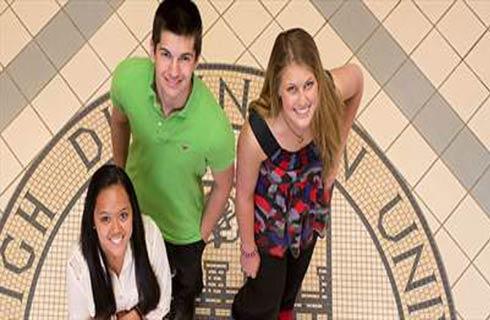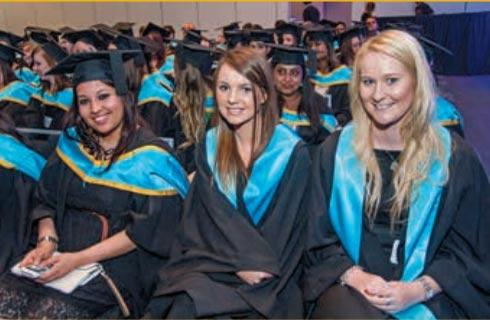口腔生物学硕士
MSc Oral Biology

学历文凭
Masters Degree (Taught)

专业院系
School of Medicine and Dentistry

开学时间

课程时长

课程学费

国际学生入学条件
IDP—雅思考试联合主办方

雅思考试总分
6.5
- 雅思总分:6.5
- 托福网考总分:92
- 托福笔试总分:160
- 其他语言考试:PTE Academic- 71 overall including 65 in Writing, and 59 in Reading, Listening and Speaking.
CRICOS代码:
申请截止日期: 请与IDP联系 以获取详细信息。
课程简介
This MSc focuses on the latest scientific developments in oral biology and health, while also covering basic science in a clinical context, giving you a comprehensive yet specialised biomedical skillset. You’ll discover the latest advances in therapeutic dentistry, nano-dentistry and dental materials.This MSc is also available for intercalating BDS Dentistry students. Find out more about intercalating at Queen Mary.Designed for dental or science graduatesExamines preventative medical techniques and commercial product research, giving you flexible career optionsGain interdisciplinary research skills that are valued in both industry and academiaLearn from our distinguished international experts and have regular contact with them throughout the programmeStudy at one of the UK’s top-rated dental schools: we are joint first for research environment (REF 2021).What you'll studyThis MSc will give you a thorough grounding in oral biology, including hands-on clinical explanations of the major scientific developments in both preventative medical techniques and commercial product research.You’ll explore the latest developments in therapeutic dentistry: for example, models for the oral delivery of drugs. You’ll also learn about advances in nano-dentistry and dental materials.Over the duration of the course, you’ll gain a sound understanding of dental anatomy, oral physiology and dental biophysics, as well as basic biochemistry in relation to dentistry. You’ll also study the chemistry of bone and tooth biominerals and components, the etiology of dental caries and erosion, saliva biochemistry, oral microbiology, dental materials science, and modern 2D and 3D x-ray imaging.In addition to these module lectures, there will also be lectures from practising clinicians on current issues in modern clinical dentistry, ensuring you’re familiar with the very latest discoveries, models and research.You’ll be working at the forefront of innovation in this field and encouraged to research areas that could have real-life patient benefit. For example, you could research drugs that have minimal side-effects so reducing the prevalence of xeristomia (dry mouth), a frequent side-effect of dental medication.Please note that for intercalating BDS students, Queen Mary students must apply by 1 February and complete an intercalated application in addition to the MSc application. Following the February deadline for iBSc applications external students are free to continue to apply for MSc degrees via the Postgraduate Taught Course online application process.
相关申请
 预科
预科 奖学金
奖学金 实习机会
实习机会 在校学习
在校学习 跨境学习
跨境学习 校园授课-线上开始
校园授课-线上开始 在线/远程学习
在线/远程学习
开学时间&学费
学费信息仅供参考,请与IDP联系以获取详细信息
| 开学时间 | 时长 | 学费 | 地点 |
|---|
学校排名

世界排名130
数据源:
泰晤士高等教育世界大学排名
关于伦敦玛丽女王大学

伦敦玛丽女王大学(简称玛丽女王大学)是全球领先的继续教育院校之一,在伦敦中部和东部共有五个校区。该校的历史可以追溯到1785年,当时在伦敦皇家医院成立了英国第一所医学院。伦敦玛丽女王大学是一所尊重和欣赏差异性的大学,每个人独特的观点都会受到重视。快来加入这个集体吧,在那里,拥有不同经历的学生共同构建了一个丰富多彩、充满活力的学习环境,个性化教育助力学生不断进步和发展。该校在伦敦及其他地区有五个校区,共有来自世界各地170多个国家的3.1万多名学生在该校学习,其中一半是国际学生。该校位居全球大学100强之列(''2024-25年美国新闻与世界报道全球最佳大学排名'') ,科研名列全球第24位(《2025年泰晤士高等教育》),在''2026年QS世界大学排名''中名列全球第110位,伦敦玛丽女王大学让每位学生都能够获得独特的大学求学体验。玛丽女王学院是英国罗素集团大学的成员,这意味着它致力于杰出的研究和教学。该大学的研究质量在英国排名第七。在最新''卓越研究评估框架''(REF)中,玛丽女王大学92%的研究被评为''国际优秀''或''世界领先''水平。学生可选择参与一些最具开拓性、最前沿的科研项目。通过屡获殊荣的职业服务,学生有机会与训练有素的顾问进行一对一的职业预约,查看超过2000个工作经验机会,并参加与来自英国各地的雇主会面的活动。
本校相关课程

博士材料科学
学历文凭
Ph.D.
开学日期
课程费用总额


博士学位语言学/应用语言学
学历文凭
Ph.D.
开学日期
课程费用总额


博士历史
学历文凭
Ph.D.
开学日期
课程费用总额


博士自然地理
学历文凭
Ph.D.
开学日期
课程费用总额


博士现代语言与文化
学历文凭
Ph.D.
开学日期
课程费用总额


博士电子工程与计算机科学
学历文凭
Ph.D.
开学日期
课程费用总额

其他相关课程

理学学士(荣誉)生物医学
 德蒙福特大学
德蒙福特大学泰晤士高等教育世界大学排名:639
学历文凭
Bachelor Degree with Honours
开学日期
课程费用总额


理学硕士-分子和细胞生物学(研究)
 怀卡托大学
怀卡托大学学历文凭
Masters Degree (Research)
开学日期
课程费用总额


生物医学硕士
 奥克兰大学
奥克兰大学学历文凭
Masters Degree (Research)
开学日期
课程费用总额


MRes Cancer Biology
 诺丁汉特伦特大学
诺丁汉特伦特大学泰晤士高等教育世界大学排名:696
学历文凭
Masters Degree (Research)
开学日期
课程费用总额


理学学士(荣誉)生物医学
 布里斯托大学
布里斯托大学泰晤士高等教育世界大学排名:81
学历文凭
Bachelor Degree with Honours
开学日期
课程费用总额


PhD in Immunological and Cellular Strategies in Metabolic Disease (King's and Technische Universität Dresden)
 伦敦国王学院
伦敦国王学院学历文凭
Ph.D.
开学日期
课程费用总额










